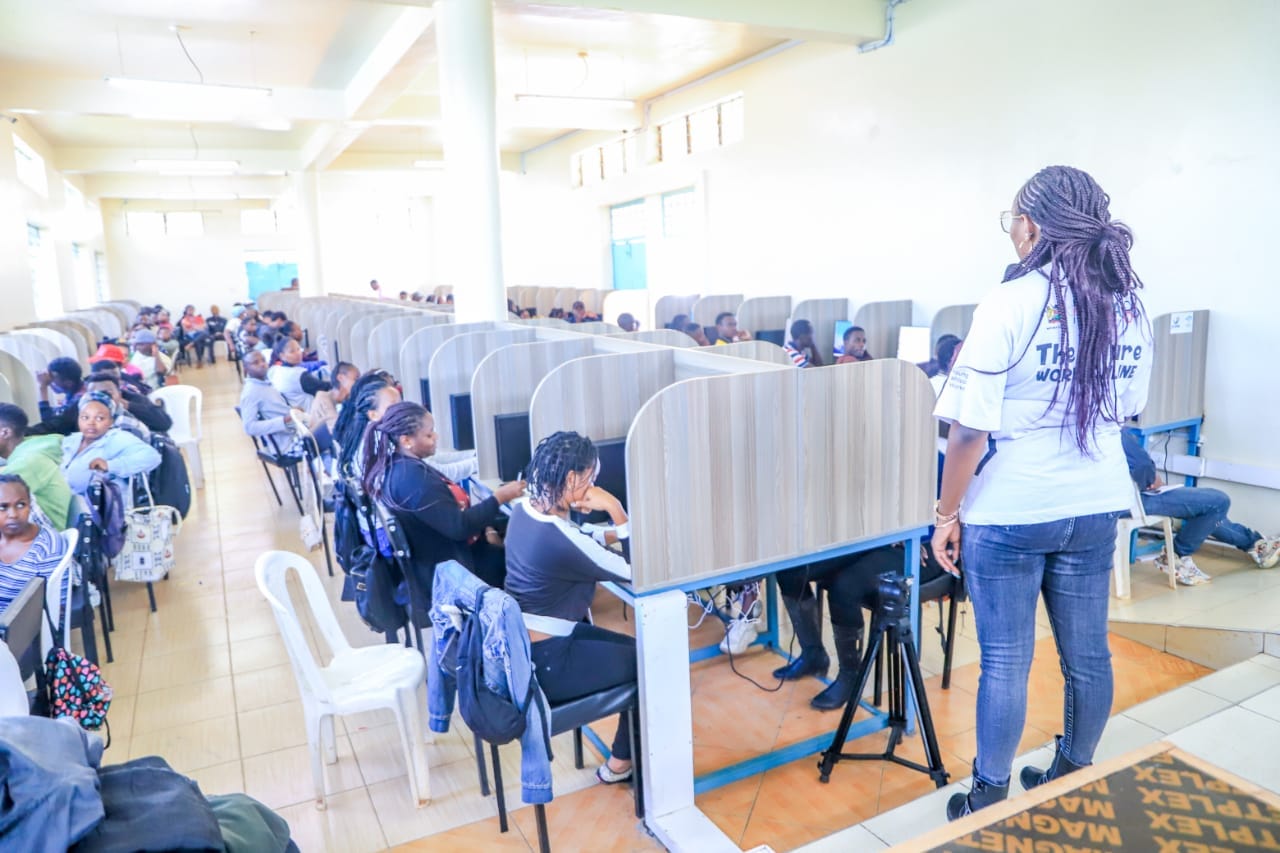The Government has moved to assure Kenyans that no contracted health provider under the Social Health Insurance Fund (SHIF) will deny members access to dialysis, cancer or maternity services.
Health Cabinet Secretary Dr Debora Mlongo said the Ministry was addressing complaints from the public that some health providers have informed patients they will need to pay cash for these services moving forward.
Dr Mulongo reassured the public: “No member will be denied access to dialysis or cancer services. Maternity services should not be denied at Kenya Essential Package for Health (KEPH) level 2 and 3 facilities, and actively managed schemes will continue to access services.”
Speaking in Nakuru when she toured various health facilities as part of monitoring the roll out and implementation of the Social Health Insurance Fund (SHIF) the Cabinet Secretary indicated that all public hospitals, from level two to six, have been contracted and are offering services to SHA-registered beneficiaries.
“As of today, 1,442 private and faith-based health facilities have returned newly signed contracts and are now providing services. To ensure that healthcare services remain accessible during the transition, SHA has set a deadline for the healthcare providers to return signed contracts by Tuesday this week,” she disclosed.
The Cabinet Secretary pledged that the government will reimburse money paid by all dialysis patients covered by National Insurance Fund (NHIF) and SHIF in Nakuru who were asked to pay in cash in various public and private health care facilities.
Dr Mlongo said unlike its predecessor National Hospital Insurance Fund (NHIF), SHIF is shifting focus from curative health to preventive and promotive health care as a key strategy for Universal Health Coverage (UHC), aimed at lowering the burden of preventable diseases.
She noted that regular check-ups and early detection of illnesses are crucial in maintaining public health adding that by providing coverage for preventative services, the programme encourages citizens to prioritize their well-being, leading to a healthier population and reducing the overall burden on the healthcare system.
“This initiative also aims to improve the quality of healthcare services. With a dedicated fund supporting healthcare providers, there is potential for increased investment in medical infrastructure, training, and technology,” she observed.
The Cabinet Secretary further clarified that claims for patients admitted before September 30 will still be processed through NHIF, regardless of their discharge date.
“Kenyans covered by NHIF and yet to shift to SHA will still receive treatment. However, they will be required to register as soon as possible. No hospital will send anyone back home because they haven’t registered. Instead, they will register you and treat you, ” said Dr Mlongo.
Her statements coincide with the government’s official rollout of the Social Health Authority (SHA) today, which is set to take over responsibilities previously managed by the National Health Insurance Fund (NHIF).
She assured Kenyans that service providers have committed to ensuring continued access to care for SHA beneficiaries during the period.
The government on October 1, 2024, rolled out SHA and on October 2, migrated all NHIF accounts to the new scheme.
The government assured that contributions made to NHIF will remain secure as the system transitions to the new Social Health Authority (SHA).
The Ministry of Health on Sunday announced that at least 12,704,548 Kenyans have so far registered with SHA.
The number includes verified members who were under the defunct National Health Insurance Fund and have been transitioned to SHA.
She indicated that 10,904 end users have been trained, enrolled and their credentials sent. Dr Mulongo advised Kenyans to register and add their dependents for them to access healthcare services.
“Registration is a continuous process and is ongoing through the USSD *147# or web-based portal on www.sha.go.ke or www.afyayangu.go.ke. We have also noted that most beneficiaries are registering but not adding their dependents,” she said.
The CS affirmed that President Ruto’s Social Health Insurance Fund represents a transformative initiative aimed at addressing the healthcare needs of the citizens.
She termed SHIF as a comprehensive health insurance programme poised to bring about abundant benefits, positively impacting the lives of Kenyans across various socio-economic strata.
NHIF had a total of 15.4 million members. Out of this, only 6.7 million were active members. In the 2021/2022 financial year, NHIF collected a total of Sh61.53 billion from its members.
The 58-year-old NHIF is being disbanded and replaced by the Social Health Authority thanks to the Social Health Insurance Bill of 2023.
Dr Mlongo explained that SHIF introduces a universal healthcare system that will guarantee access to essential medical services to all Kenyan citizens adding that the element of the proposed fund’s inclusivity was a pivotal step towards reducing health disparities and promoting health equity.
“A major ingredient of the Fund is that it comes with huge financial relief to families. Medical expenses exert substantial financial pressure, tipping many families into poverty. President Ruto’s initiative seeks to lessen this by scattering the cost of healthcare across the population,” stated the Cabinet Secretary.
The new agency will be responsible for administering three distinct funds namely, Primary Health Care Fund, Social Health Insurance Fund, and Chronic Illness and Emergency Fund.
Under the bill, the Primary Health Care Fund is designated to support preventive and promotive primary care services at the community, dispensary, and health centre levels.
The Social Health Insurance Fund will cover several services including direct referrals, and secondary and tertiary healthcare, while the Chronic Illness and Emergency Fund is designed to address chronic conditions such as diabetes, hypertension, cancer management, and emergency treatments.
The Ministry of Health has gazetted the transition committee to oversee changes in the health scheme.
The Transition Committee on the Social Health Authority is mandated to ensure a seamless transition from the National Health Insurance Fund (NHIF) to the Social Health Authority (SHA).
The Health Cabinet Secretary appointed the ten-member committee through a gazette notice dated January 25. The transition committee is chaired by Jason KapKirwok.
Members of the committee include Dr Daniel Mwai (presidential health advisor and health economist), Dr Kipruto Chermusoi Chesang, Dr Jacinta Wasike, Gladys Wambui Mburu, Stephen Kaboro Mbugua and Dr Elizabeth Wangia. Other members are Christopher Leparan Tialal, Dr. Jacob Otachi Orina and Dr. Stanley Bii.
The committee is mandated to develop a legal and institutional framework for the coordinated transition to SHA.
Dr Mlongo assured Kenyans the management of NHIF had documented the organization’s properties, liabilities, and assets, which will be handed over to the new authority.
Furthermore, noted the Cabinet Secretary, the Fund will have positive implications for the workforce and productivity as a healthier population will translate into more productive workers and entrepreneurs, contributing to economic growth.
“By addressing health issues proactively, the initiative aims to reduce absenteeism and improve overall workforce efficiency. With a substantial portion of the population covered by the Fund, there is a likelihood of decreased pressure on government-funded healthcare facilities. This could result in shorter waiting times, improved service delivery, and better overall experiences for patients seeking care in public hospitals,” observed Dr Mlongo.
Dr Mlongo also pointed out the program entrenches a strong sense of social solidarity as the collective approach reinforces social bonds and instils a sense of security among citizens, knowing that they are part of a system that cares for their well-being.









